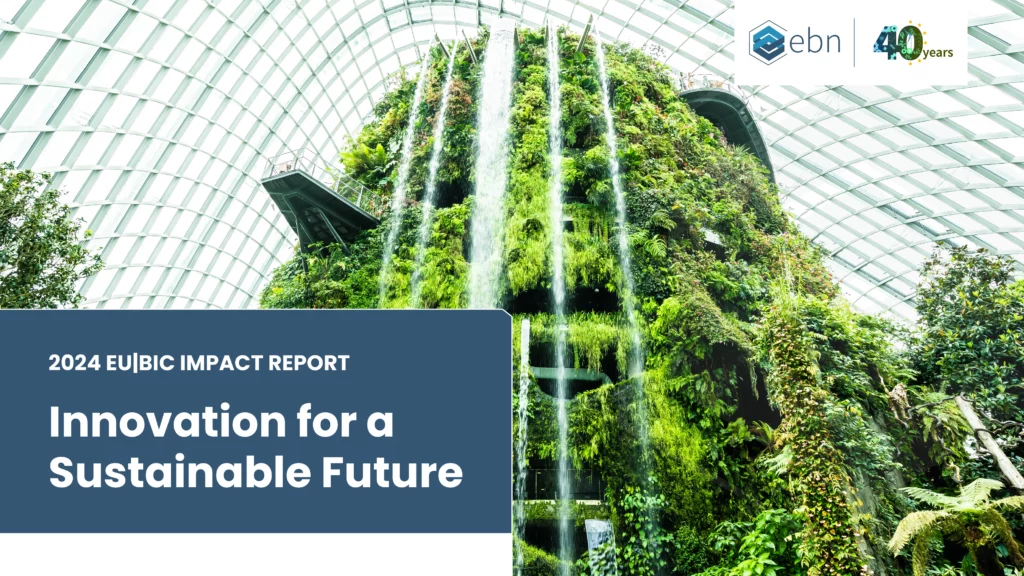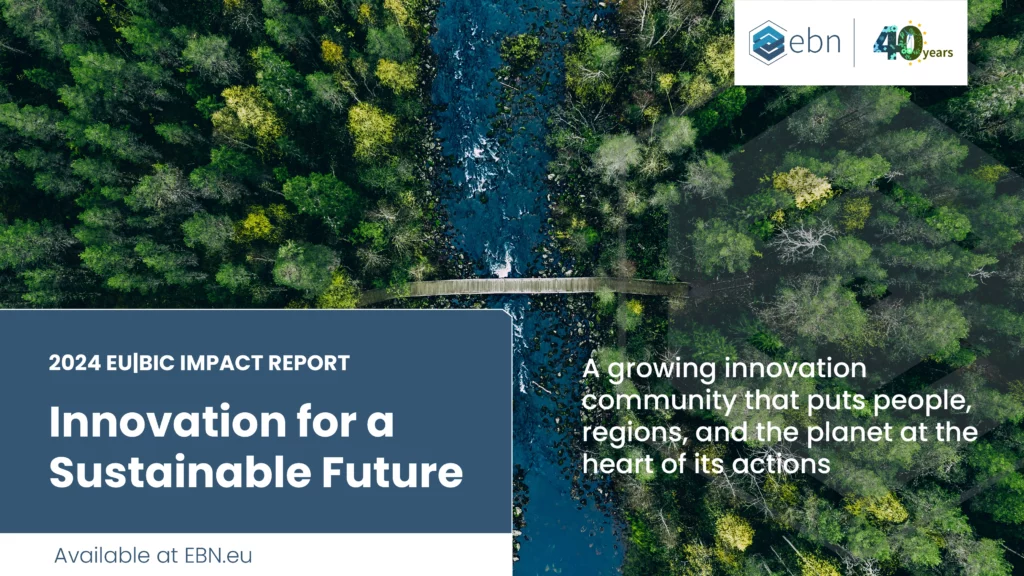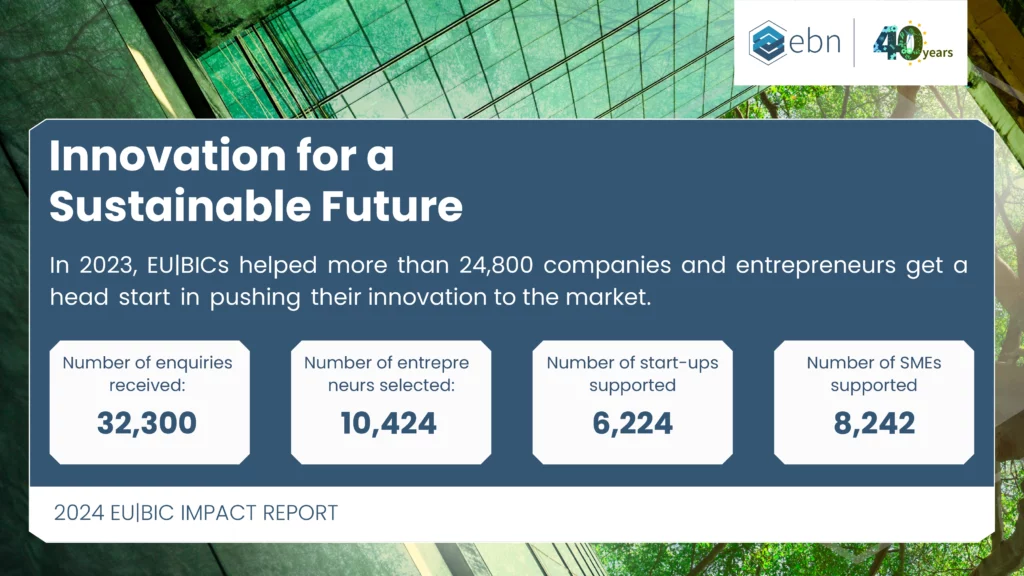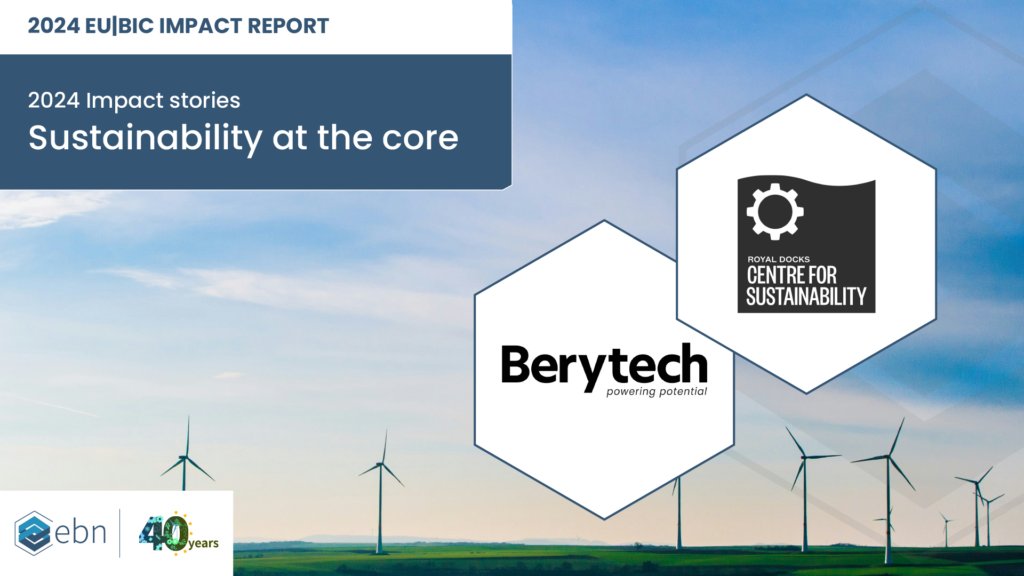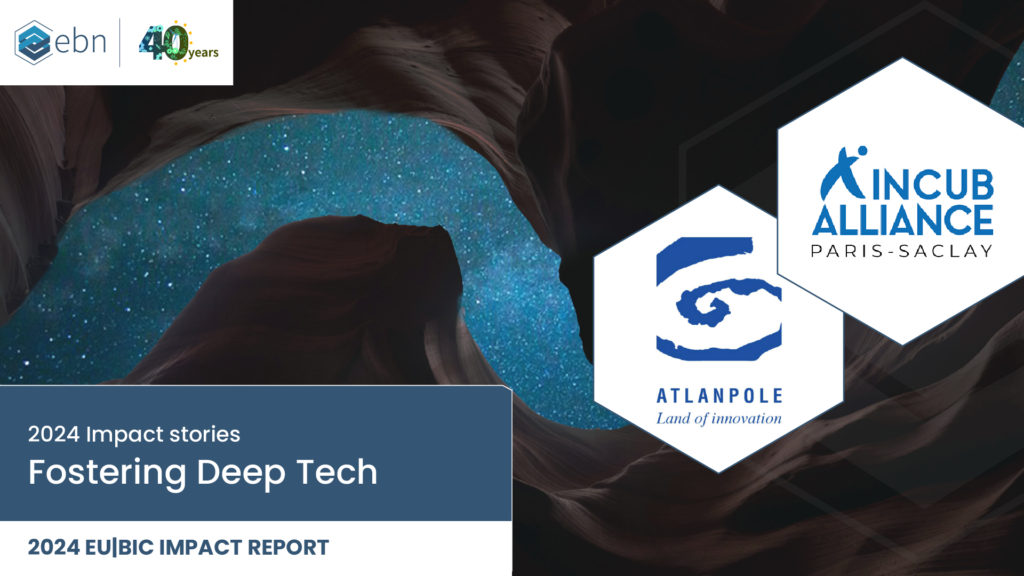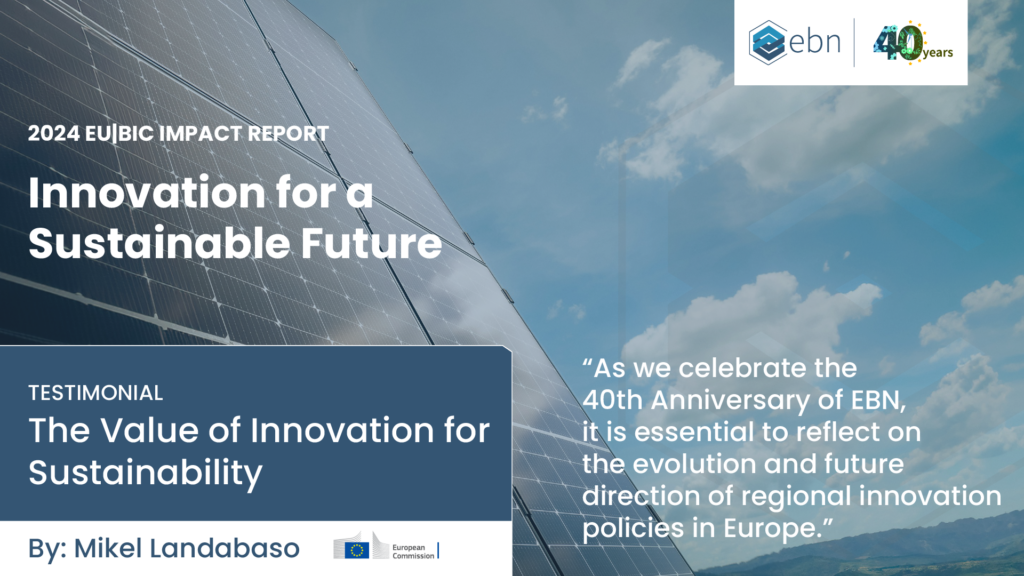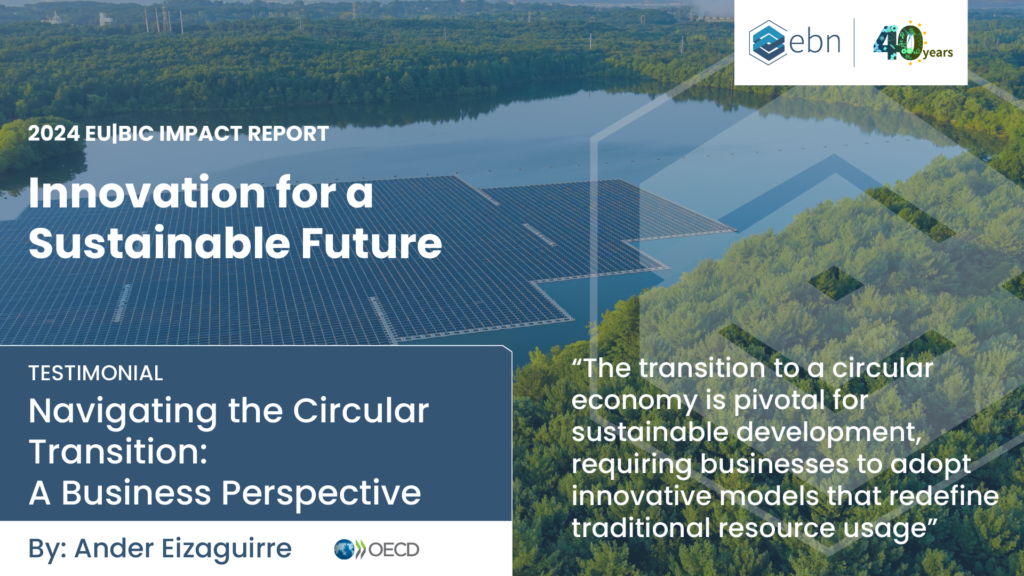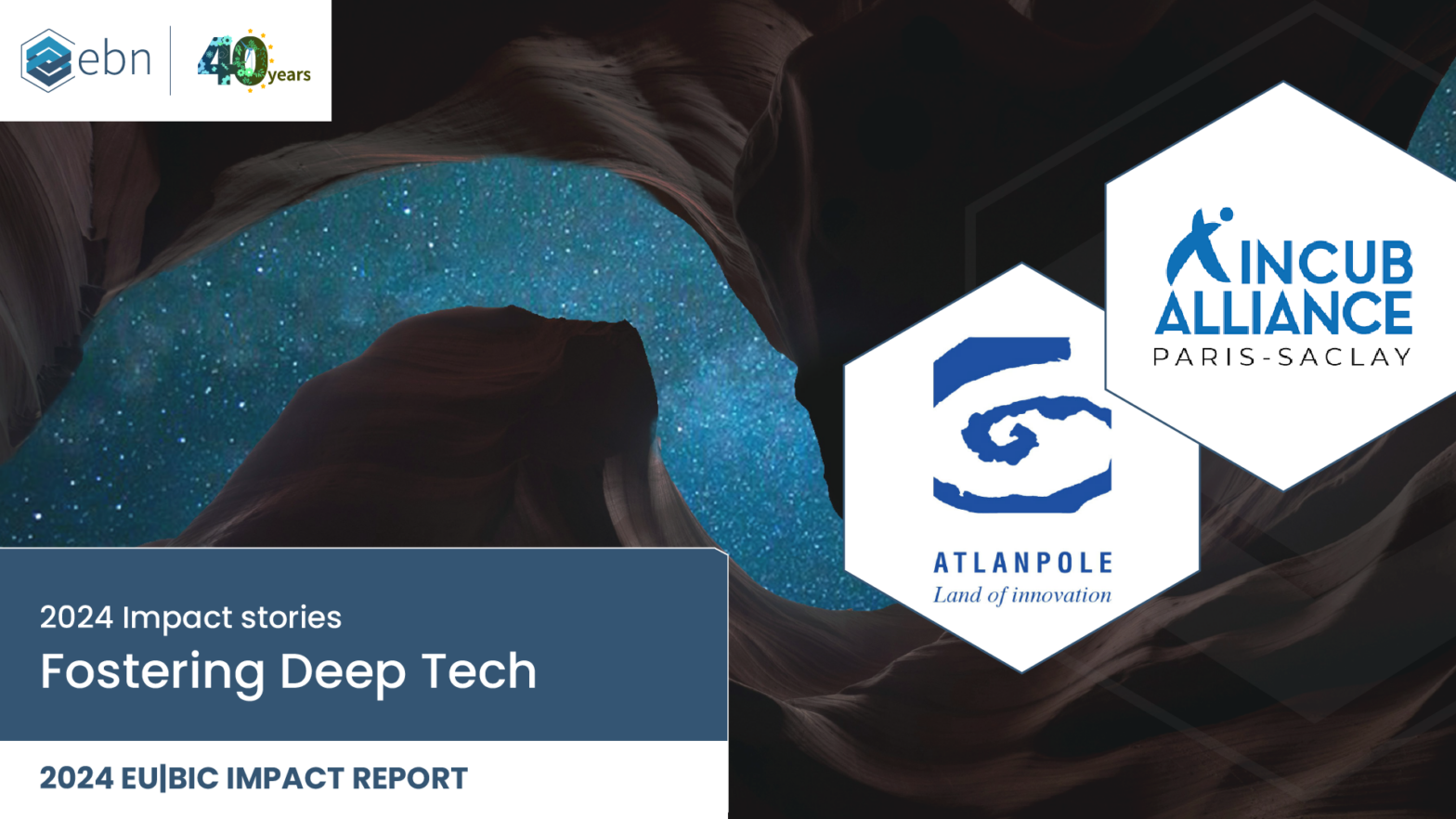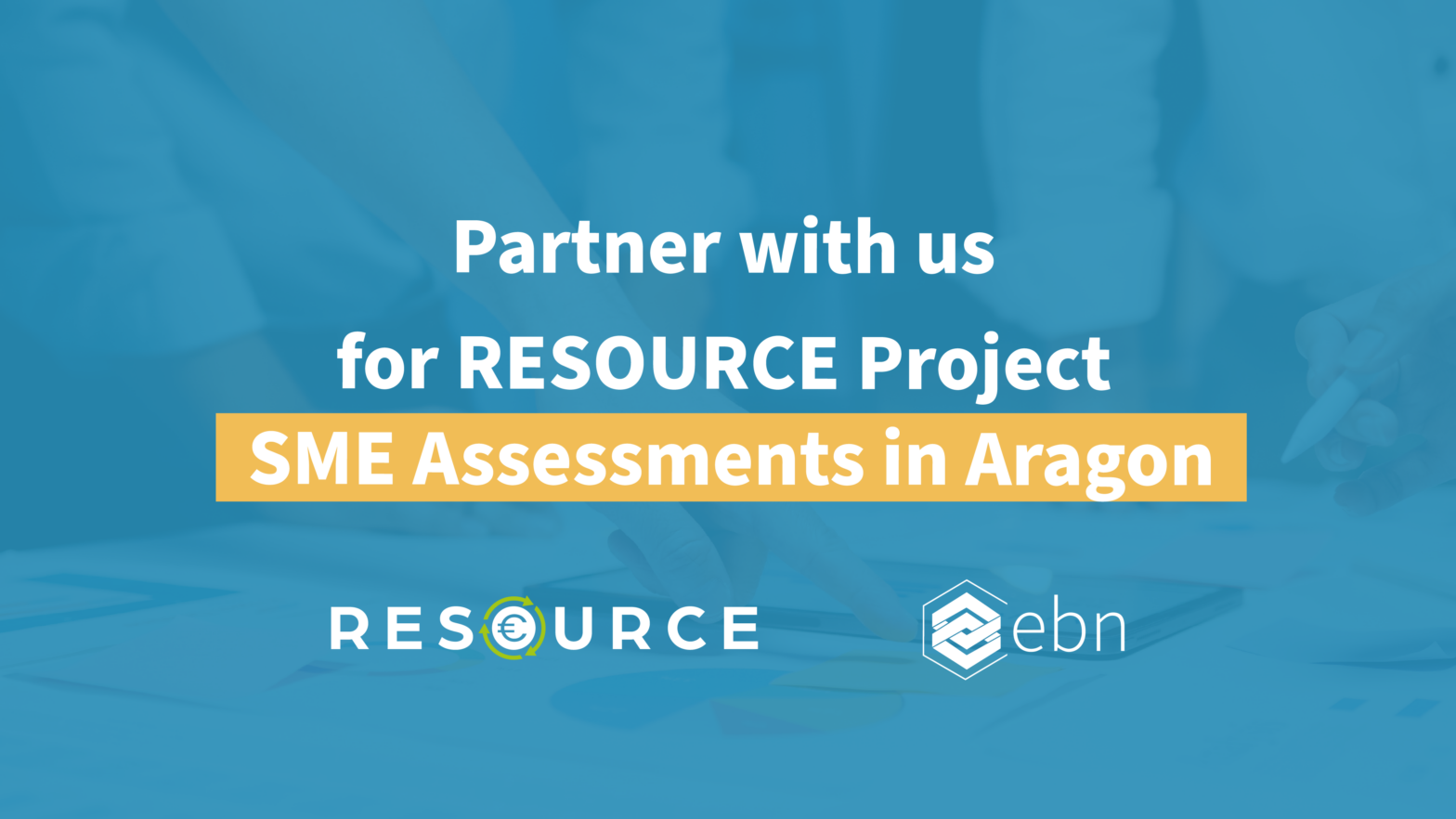Building growth: 2024 Impact Stories

This article is part of a series, you can find other stories about our community’s impact here
The EU|BIC community’s pan-European nature stands as one of its most formidable assets, bolstering the expansion potential of startups, scaleups, and innovative SMEs. This intrinsic diversity fosters a unique environment where innovation can thrive, creating a robust ecosystem for entrepreneurial growth. EU|BICs facilitate access to both domestic and international markets through strategic partnerships and extensive networks, helping startups overcome market entry barriers and navigate complex regulatory landscapes.
Every year EU|BICs support thousands of companies to scale their operations, among others by supporting them to access international markets and new local markets.
A network of networks
Research reveals that Europe has seen substantial investment in its tech ecosystem, with several funding rounds exceeding €100 million.
EU|BICs support thousands of companies annually, enabling them to overcome market entry barriers and navigate complex regulatory landscapes. They are instrumental in facilitating access to both domestic and international markets. Their strategic partnerships and extensive networks provide startups with the resources needed to scale effectively. Through network-building and strategic alliances, EU|BICs create a “network of networks” that fosters entrepreneurial innovation. This interconnected ecosystem not only supports companies in scaling their operations but also strengthens regional economies. By helping startups access new local and international markets, EU|BICs contribute significantly to the broader economic and social transformation in Europe.
Story
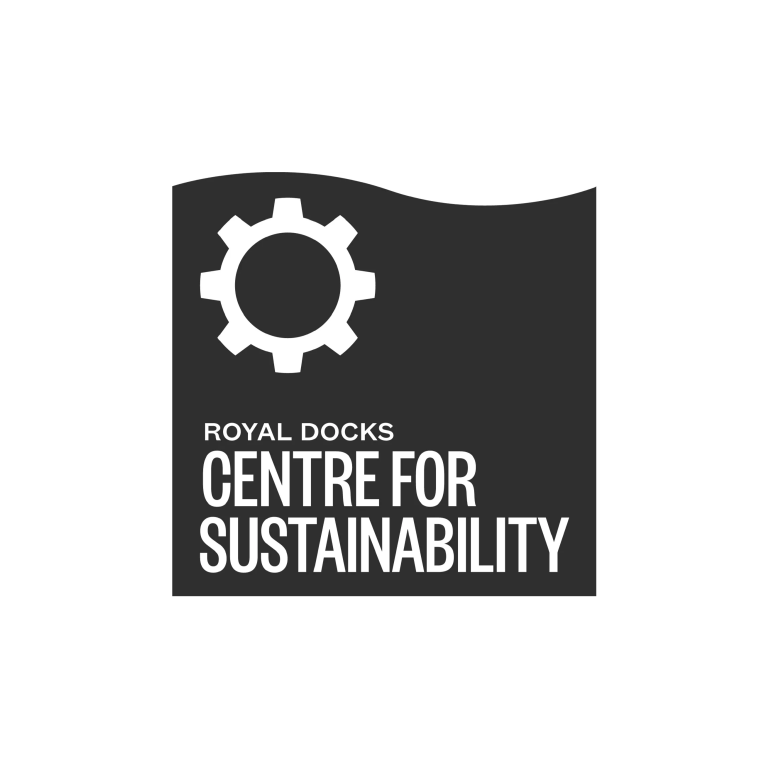
By: Robert de Jong,
Director at Royal Docks Centre for Sustainability (University East London)
EU|BIC Royal Docks Centre for Sustainability’s Vision for East London
In the heart of East London, the Royal Docks Centre for Sustainability (RDCS) stands as a beacon of innovation, enterprise, and sustainability. Launched by the University of East London (UEL), the RDCS emerges as a critical response to the burgeoning demands of the next industrial revolution. This pioneering initiative marks a significant stride toward fostering a sustainable future for the Royal Docks and the wider East London area.
The Scale-up (‘Unicorn’) Challenge
Europe’s challenge in nurturing unicorns—startups valued at over €1 billion—stems from multiple factors. Various reports underscore the necessity for a supportive regulatory environment, access to funding, and a thriving innovation culture to cultivate these high-growth companies. Despite Europe’s potential, there is a notable discrepancy in the number of unicorns compared to other regions like the United States and China.
While Europe is home to numerous innovative startups, there is a gap in the availability of late-stage funding. This funding gap often compels promising companies to seek investment abroad or relocate entirely to markets with more mature financial ecosystems. Addressing this issue is crucial for retaining talent and innovation within Europe.
Story
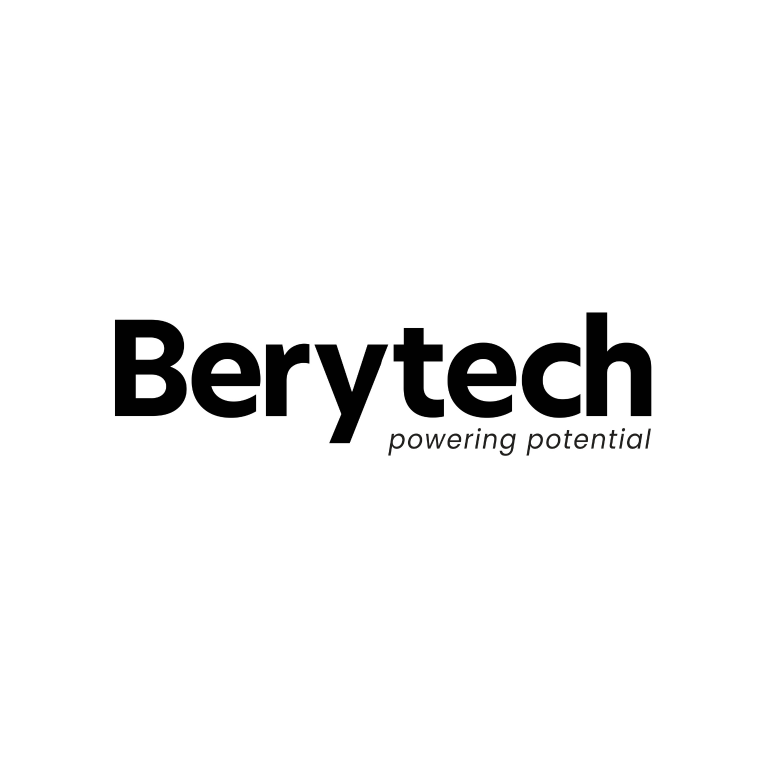
By: Joelle El Hajjar,
Programmes Manager, Berytech Foundation
EU|BIC Berytech – The Circular Transition: EMBRACE toolkit
In a circular economy, growth is decoupled from the consumption of scarce resources, and products are kept in productive use for as long as possible. Joelle El Hajjar programme manager from Berytech Foundation an organisation that actively supports entrepreneurs by providing a dynamic environment and ecosystem fostering innovation, technology and entrepreneurship in the region across the green, knowledge, social and blue economies, emphasises that this approach is consistent with the objectives of a green economy, which focuses on creating an innovation-driven national economy, promoting closed-loop systems, and reducing the consumption of non-renewable resources.
Learning from successful models like Instituto Pedro Nunes (IPN) in Coimbra, Portugal, and JIC in Brno, Czechia highlights the importance of strong academic-industry linkages, comprehensive support infrastructures, collaborative ecosystems, and effective funding mechanisms. IPN and JIC have fostered notable unicorns such as Feedzai and Critical Software from Coimbra, and Vrgineers and Smartlook from Brno, demonstrating how robust support structures and conducive entrepreneurial environments can lead to significant startup growth and international success.
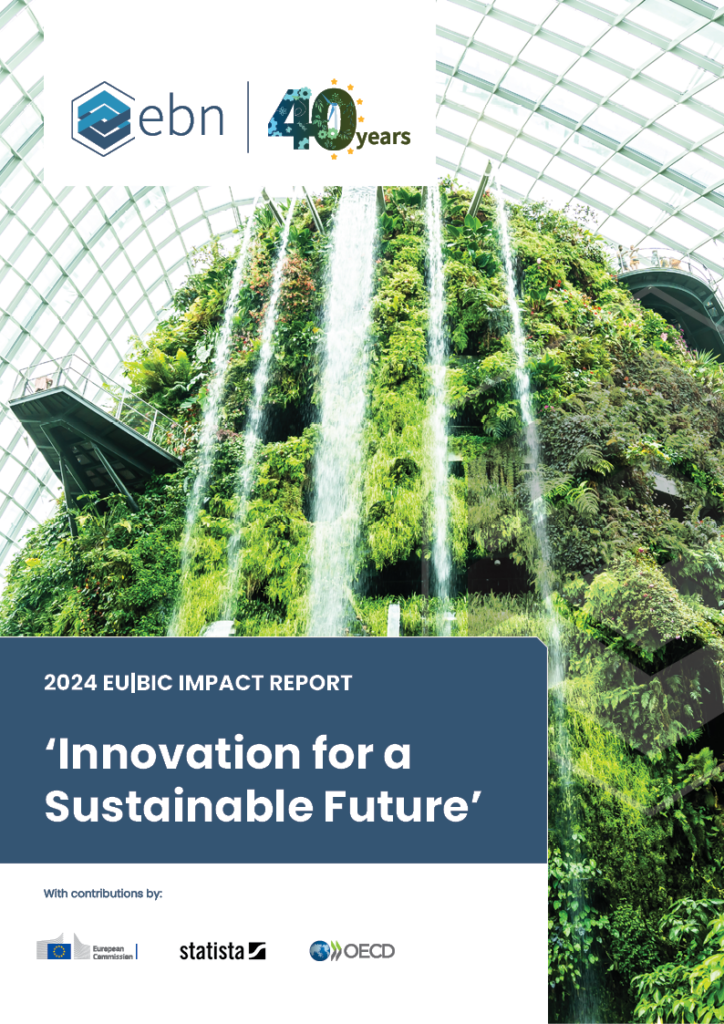
Our mission commitment to quality business support, regional development, and sustainable innovation is enhancing the competitiveness of European enterprises and contributing to the overall cohesion of European regions and the well-being of their societies.


